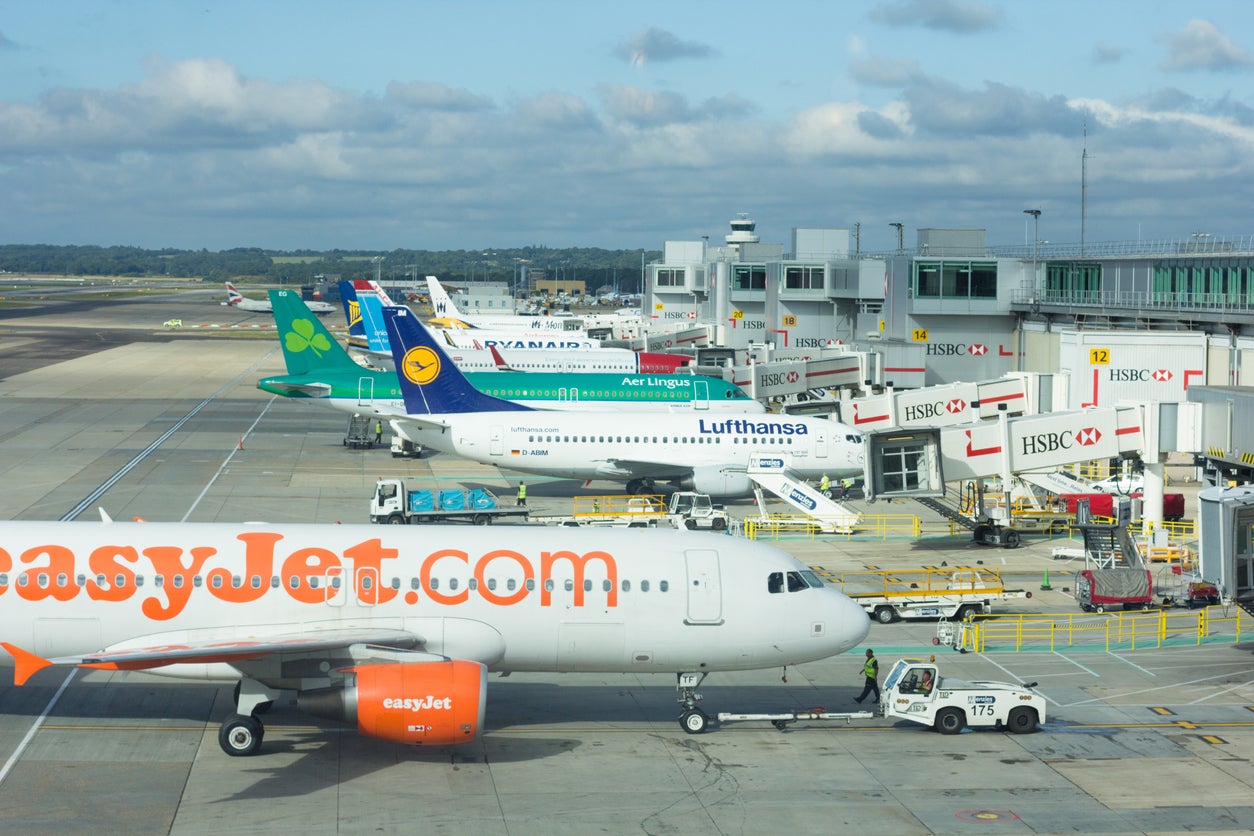Airlines must ‘use or lose’ flight slots as UK airport amnesty ends
Last summer’s ‘slot amnesty’ resulted in increased uncertainty over flight cancellations

Your support helps us to tell the story
From reproductive rights to climate change to Big Tech, The Independent is on the ground when the story is developing. Whether it's investigating the financials of Elon Musk's pro-Trump PAC or producing our latest documentary, 'The A Word', which shines a light on the American women fighting for reproductive rights, we know how important it is to parse out the facts from the messaging.
At such a critical moment in US history, we need reporters on the ground. Your donation allows us to keep sending journalists to speak to both sides of the story.
The Independent is trusted by Americans across the entire political spectrum. And unlike many other quality news outlets, we choose not to lock Americans out of our reporting and analysis with paywalls. We believe quality journalism should be available to everyone, paid for by those who can afford it.
Your support makes all the difference.The government has confirmed that it will end the amnesty on its usual airport slots rules on 26 March, a measure that was introduced last summer to ease pressure on the travel industry.
Transport secretary Mark Harper is expected to make the official announcement on Wednesday (1 February).
The Department for Transport (DfT) last June announced that UK airlines would be allowed to cancel flights without being penalised for not using their airport slots, an exception to the previous rules.
Airport slots are used to manage capacity at the UK’s busiest aviation hubs, with airlines required to “use them or lose them”; slots are removed if an airline doesn’t use them a minimum number of times per season.
Prior to the government amnesty, UK airlines had to use their allocated places at least 80 per cent of the time or risk losing them.
Last summer, with airlines able to cancel flights with impunity – knowing they would retain their precious slots – many UK travellers’ plans were thrown into disarray as thousands of summer holiday departures were axed.
Airlines concerned about filling 80 per cent of their allocated slots have been told they may give back up to 5 per cent of their slots before the start of summer, in order to deliver “realistic schedules”.
The consumer champion Which? has warned that reintroducing the 80:20 rule could result in a repeat of last summer’s travel chaos.
The brand’s travel editor, Rory Boland, said: “Travellers faced complete chaos last summer, with many airlines consistently failing in their ability to deliver anything close to a reliable service.
“With some companies still in the process of re-staffing, and tickets selling in record numbers, the government’s decision to drop the airline slots amnesty could mean airlines once again resort to last-minute cancellations if they are not fully prepared for the summer season.
“It is essential that airlines and airports take every necessary step to ensure they can deliver their promised schedules, and the government must not hesitate in taking action against any airlines found once again to be taking bookings they cannot fulfil.”
The Independent’s travel correspondent, Simon Calder, added: “Last summer passengers felt the damaging impact of the ‘slot alleviation’ the government gave the airlines.
“Both British Airways at Heathrow and easyJet at Gatwick substantially overpromised their summer schedules, and ultimately took millions of seats out of the market – reducing choice and pushing up fares.
“Yet even though they blocked competitors from flying from the UK’s key airports, BA and easyJet were free to hang on to their valuable slot portfolios.
“The obligation to use slots 80 per cent of the time is also anti-competitive: if there are good reasons not to use a particular slot, the airlines should be able to say so. But to say they can leave one in five slots empty acts against the passenger.”
A DfT spokesperson said slots rules had been alleviated since the start of the pandemic, adding that it had been critical in helping airlines get through the worst of the Covid-travel period.
“This completely misrepresents last year’s slots amnesty, which gave airlines a short window to handback up to 30 per cent of their slots, and was an emergency measure introduced during the summer season,” they said.
“Far from being the cause of disruption it was one of the key measures that helped airports and airlines get the situation under control and plan a robust schedule for the rest of the season, avoiding the kind of last minute cancellations and delays that we had seen up to that point - and giving passengers certainty.
“This announcement provides flexibility in our slots rules for this summer to help airlines plan their schedules and passengers get away on time.”
Join our commenting forum
Join thought-provoking conversations, follow other Independent readers and see their replies
0Comments